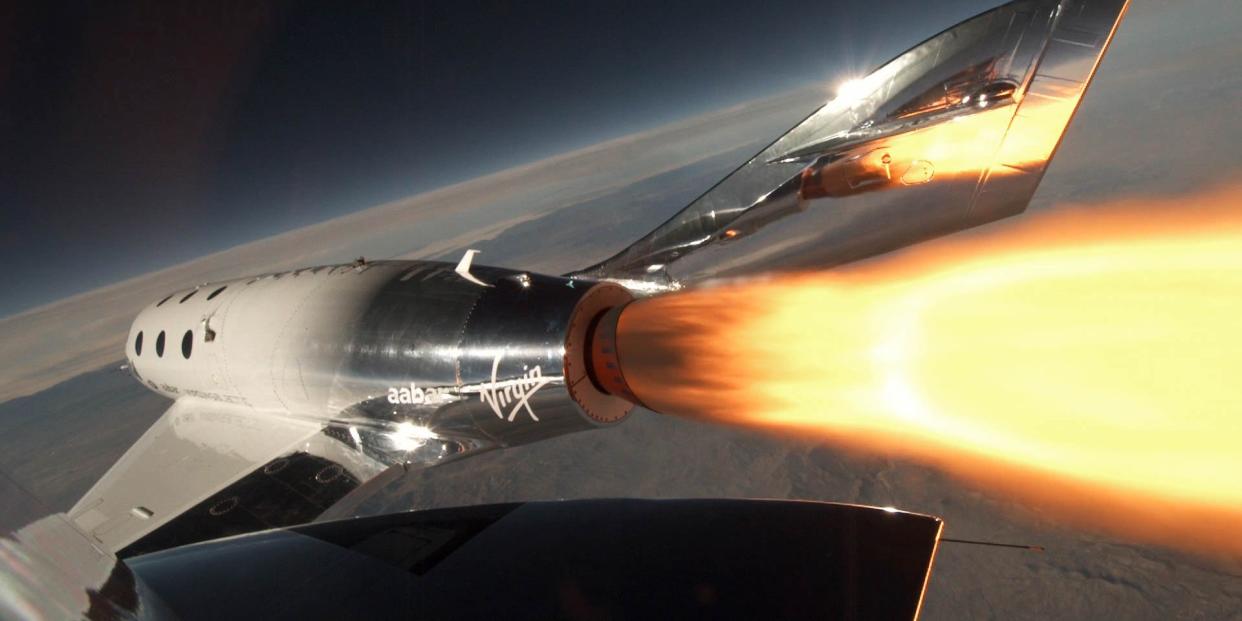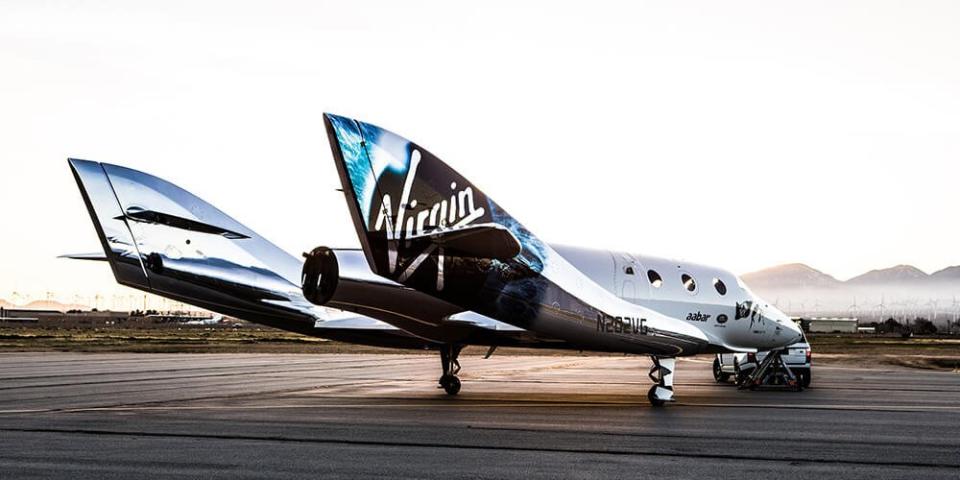Virgin Galactic launched a test craft 50 miles into the sky, and got its first ever taste of space

Virgin Galactic
Richard Branson's Virgin Galactic launched a rocket into space for the first time on Thursday.
The flight ascended just over 50 miles above the earth, which is 12 miles shy of the most common definition edge of the edge of space — though it meets the US Air Force definition.
Two pilots flew SpaceShipTwo with enough cargo to simulate a full contingent of six passengers. The pilots would have experienced weightlessness in the flight.
The company says 600 people have already reserved spaces for when commercial services begin.
Here's how Tesla's SpaceX, Amazon's BlueOrigin, and Virgin Galactic plan to take people to space.
Virgin Galactic launched a test flight for its six-seater passenger spacecraft, which reached space for the first time in the company's history on Thursday.
The space company, founded by Richard Branson, has now demonstrated its technical ability to deliver the commercial space flight product it has been promising for more than a decade.
VSS Unity (also known as SpaceShipTwo) took off at 7:12 a.m local time on Thursday from the company's launchpad in the Mojave Desert of California.
It landed safely at 8:14 a.m, according to live tweets from the company.
Virgin Galactic say the flight — steered by pilots Mark Stucky and CJ Sturckow — reached 51.4 miles above the earth, and hit a max speed of 2.9 Mach (2.9 times the speed of sound, or 2,225 mph).
Here is the video of the start of the flight:
Tweet Embed:
//twitter.com/mims/statuses/1073238643630759937?ref_src=twsrc%5Etfw
Lovely shot of takeoff! WhiteKnightTwo and SpaceShipTwo take to the skies pic.twitter.com/JFcSDVB9jR
WhiteKnightTwo is the name of the regular jet plane which carries SpaceShipTwo most of the way up, after which it reaches peak altitude with its own rocket engine.
Fifty miles above the earth's surface is one possible definition of being "in space," and is the one used by the US Air Force. NASA considers space to begin 62 miles up, by which definition Thursday's flight fell short.
Virgin Galactic shared a photo of the team involved after the landing:
Tweet Embed:
//twitter.com/mims/statuses/1073252447286489088?ref_src=twsrc%5Etfw
A very special shout out to our sister company @TheSpaceshipCo who built SpaceShipTwo for us. Congratulations on creating a fully reusable spacecraft! pic.twitter.com/4JCKxtRvRC
Virgin-owner Richard Branson's project seems to be advancing and getting closer to taking paying passengers into space for the first time in history, but it has suffered several setbacks and missed deadlines.
Read more: Virgin Galactic just released its first commercial for a trip to outer space
Branson is well known for setting target launch dates and then missing them. He has previously predicted that space flights would be operational by 2009, 2011, 2013, and 2014.

Virgin Galactic
His prediction in October that Virgin Galactic was "weeks away" from launching into space now seems reasonably accurate.
The Galactic project hasn't been without serious setbacks.
A craft crashed in 2014 killing the co-pilot. It took two years to launch the next manned flight in 2016.
Asides from internal issues, Virgin Galactic is racing against Amazon's BlueOrigin, which has also been developing craft to launch passengers into space, as well as Elon Musk's SpaceX in a close third place.
VSS Unity can carry six passengers, and tickets costs $250,000. The company says 600 people have already reserved spaces on their first commercial spaceflights.
NOW WATCH: How SpaceX, Blue Origin, and Virgin Galactic plan on taking you to space
See Also:

 Yahoo News
Yahoo News 

